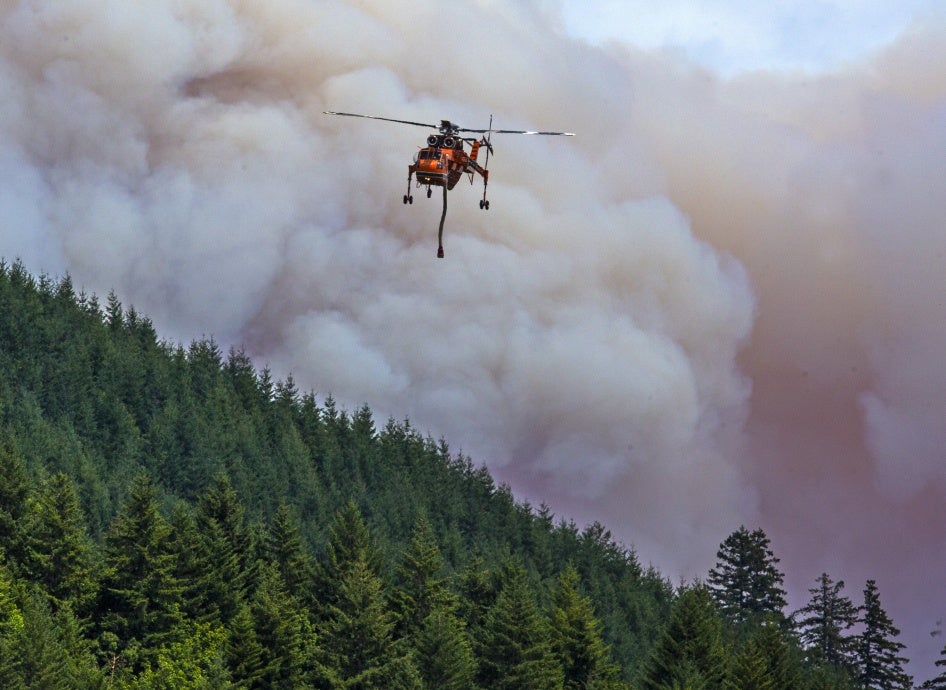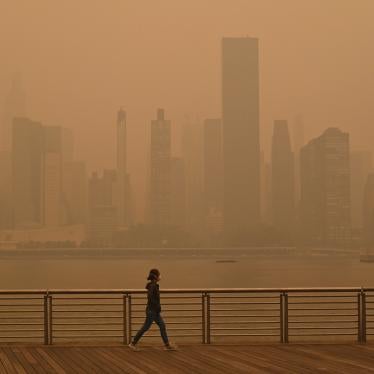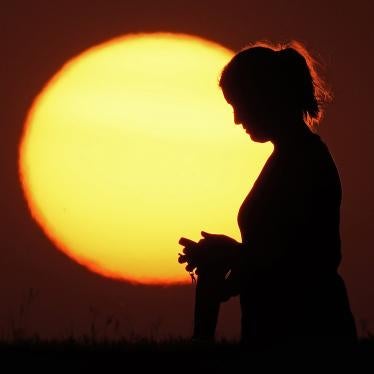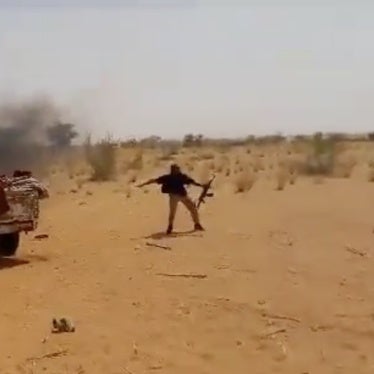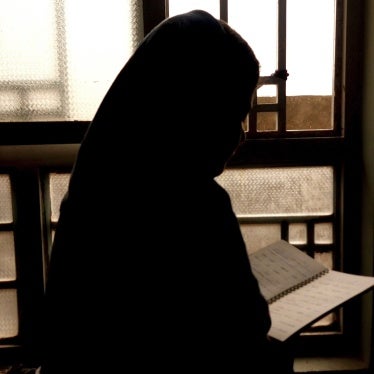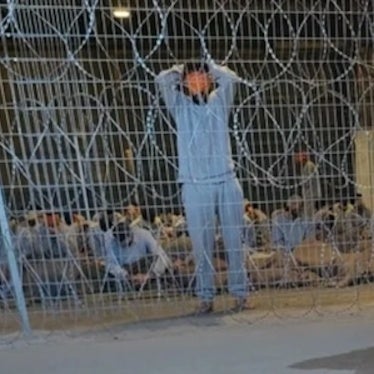- Air pollution and stress from wildfires is on the rise with specific harms for maternal health, but experiences from Oregon indicate that public health officials are not doing enough to reach pregnant people with vital health hazard information.
- It’s crucial for state and federal governments to address the environmental harms to pregnancy that intersect with racism and unfairness in income, quality housing, and safe work.
- Federal, state, and local governments should prioritize disproportionately affected communities and include these groups in planning how to reach the people who can most benefit from the information.
(Washington, DC) – Air pollution from wildfires is on the rise, but experiences from Oregon indicate that public health officials are not doing enough to provide education and resources to pregnant people, Human Rights Watch, an international human rights advocacy organization, and Nurturely, an organization that promotes equity in perinatal wellness, said today. Officials are not listening to the needs and experiences of pregnant people most at risk of exposure and enabling trusted community health workers to provide localized, actionable advice.
The 78-page report, “Reproductive Rights in the US Wildfire Crisis: Insights from Health Workers in Oregon State,” finds that the US government needs to do more to address the growing threat wildfires pose to maternal and newborn health, particularly in marginalized communities. The organizations documented the impacts of recent wildfires on maternal and newborn health in the state of Oregon, drawing on the experiences of community health workers and maternal health providers, among others.
“Pregnancy health and wellbeing is at risk in the US, with deep and painful unjust inequities between communities,” said Aver Yakubu, program director at Nurturely. “We’re living in the climate crisis now and it’s crucial for state and federal governments to address the effects of environmental harms on pregnancy that intersect with systemic racism factors, such as economic inequities that dictate whether someone can temporarily leave a smokey area or not, quality housing, and safe work environments.”
Wildfires, including increasingly common megafires, hazardous smoke, and extreme heat, have been on the rise in part because of drier, hotter conditions due to climate change. The recent trend of increasingly damaging fires in closer proximity to inhabited areas is predicted to continue: Oregon state health officials said in July that, in Oregon, levels of harmful “particulate matter, or PM2.5, from wildfire smoke are expected to double or triple by the end of the century.” PM2.5 is associated with worse maternal and newborn health in many studies.
Human Rights Watch and Nurturely interviewed more than 50 maternal health providers including doctors, doulas, midwives, and community health workers in Oregon – a state greatly affected by wildfires – as well as public health officials and scientists.
Findings showed that trusted community-based health workers, including doulas and midwives, are important but under-supported in providing information and protective strategies. They found that some communities struggle to find and use public health information, like advice on when and how to use air filters on high-risk, low-air-quality wildfire smoke days. Pregnant people and other at-risk groups should be included in planning how to reach the groups who can most benefit from the information.
Wildfire exposure is associated with adverse birth outcomes such as preterm birth, a major cause of infant death in the US, that can also cause lifelong physical and mental health harm. Preterm birth rates have increased in recent years in the US and, like low birth weight and infant mortality rates, are twice as high for Black mothers, for example, than white mothers. Maternal and newborn health are threatened by the climate crisis in other ways too. For example, studies on exposure to extreme heat have found associations not only with preterm birth, but also still birthand maternal health complications. A recent study found wildfire exposure and extreme heat together could have a bigger harmful impact on pregnancy. Toxic chemicals in wildfire smoke have also been found, in other studies, to be associated with maternal health problems such as hypertension.
The groups said state and federal authorities should adopt a reproductive justice approach to providing support services. Pregnant people, including those on public health insurance like Medicaid, should have access to air filters and air conditioning units, and receive assistance leaving areas with low air quality as needed. Additionally, workplace safety rules for periods of high heat and smoke should be improved.
“Online advice about hazardous air pollution is more accessible and actionable to a middle-class person who speaks English or Spanish, is already concerned and knows where to look, and who can afford air filters and to stay at home on the worst days,” said Skye Wheeler, senior researcher at Human Rights Watch. “The situation is very different for a pregnant person whose rental home leaks smoke, or who lives in a tent, or who must work in smoke and heat.”
The groups also found that maternal mental health was at risk in wildfire events, and that healthcare providers were also adversely impacted as they were left to figure out how to protect themselves and family as well as their patients. Wildfires also meant that pregnant people missed out on pre- or postnatal care and were sometimes not able to give birth where they wanted.
Community-based doula care can provide global majority communities with culturally appropriate support and allyship for pregnant people, and is also associated with improved birth outcomes. Research by a group of maternal health organizations found that doulas are concerned about climate impacts, are already providing some information and advice to their clients, and want to be better resourced to be able to do more. US states are increasingly providing Medicaid coverage for doula care to improve the affordability of their services, but most still do not.
The US also needs to do more to reduce its greenhouse gas emissions, including by beginning a fair and equitable phase-out of the fossil fuel industry, the groups said. The US is the world’s biggest oil and gas producer and accounts for the greatest share – more than one third – of all planned global oil and gas expansion through 2050.
“There is no way to adapt our way out from the health harm of wildfires without transitioning from the fossil fuel and petrochemical industry,” Yakubu said. “But pregnant people should be able to equitably access information about hazards from wildfire smoke, and what protections are available for them and the next generation.”
